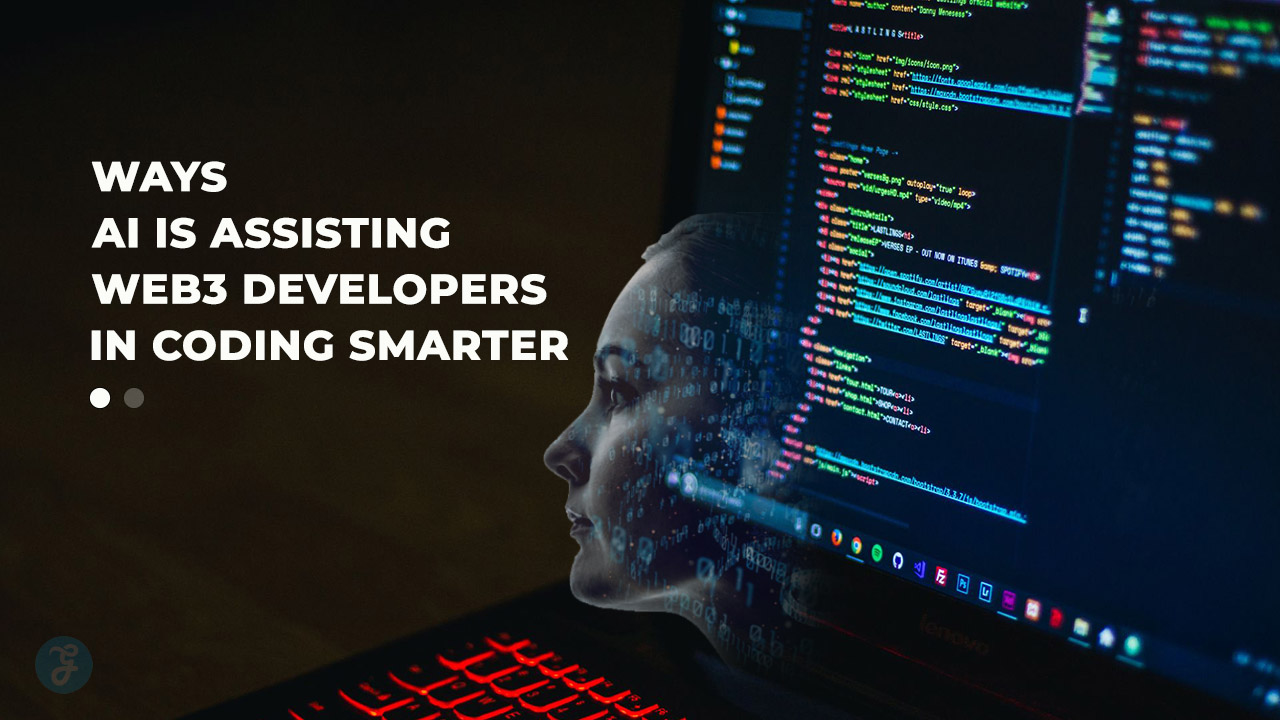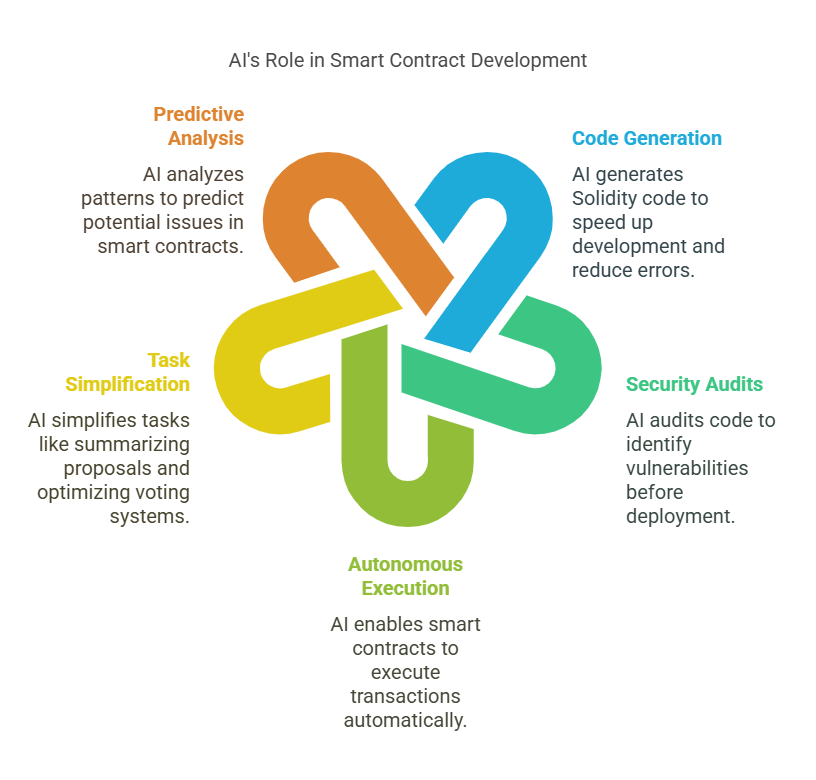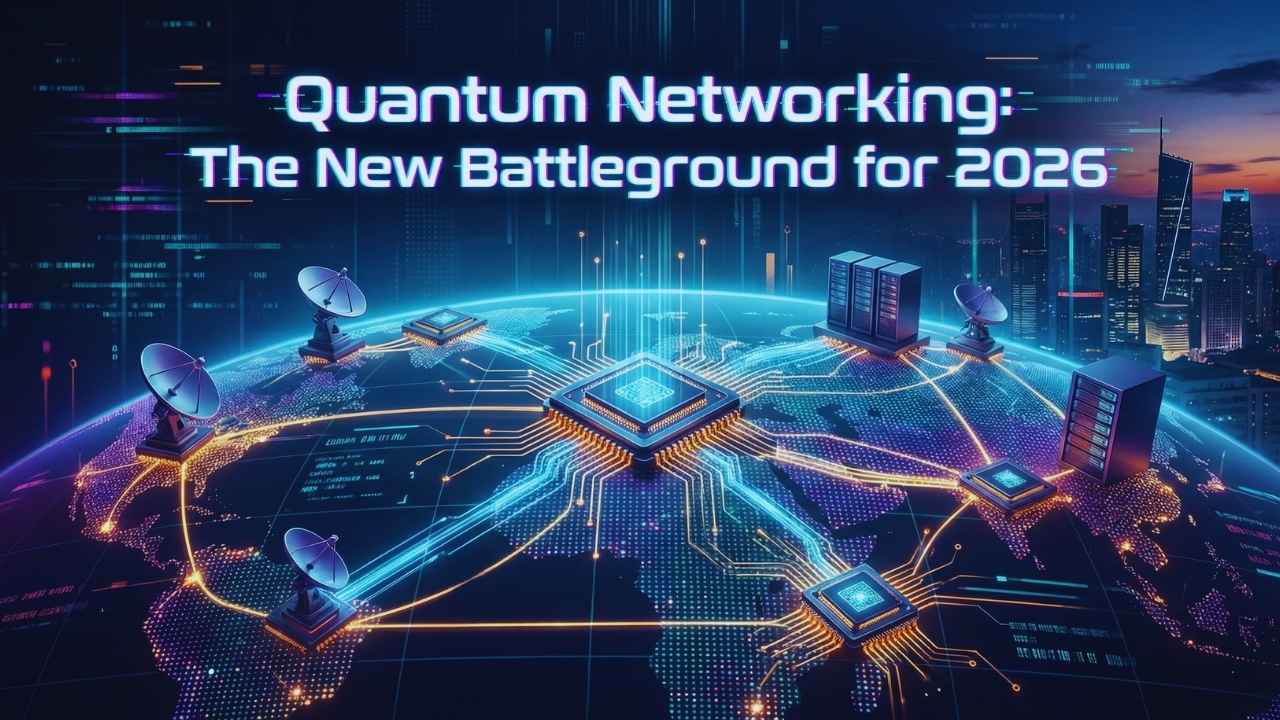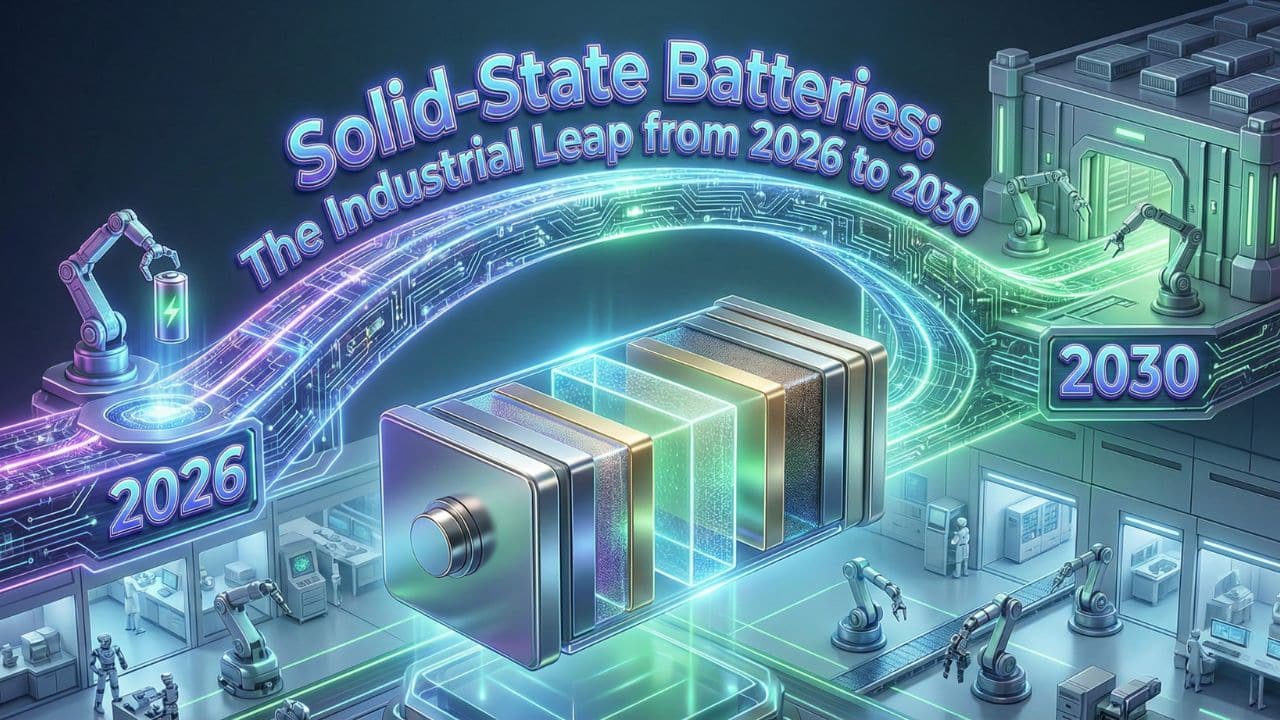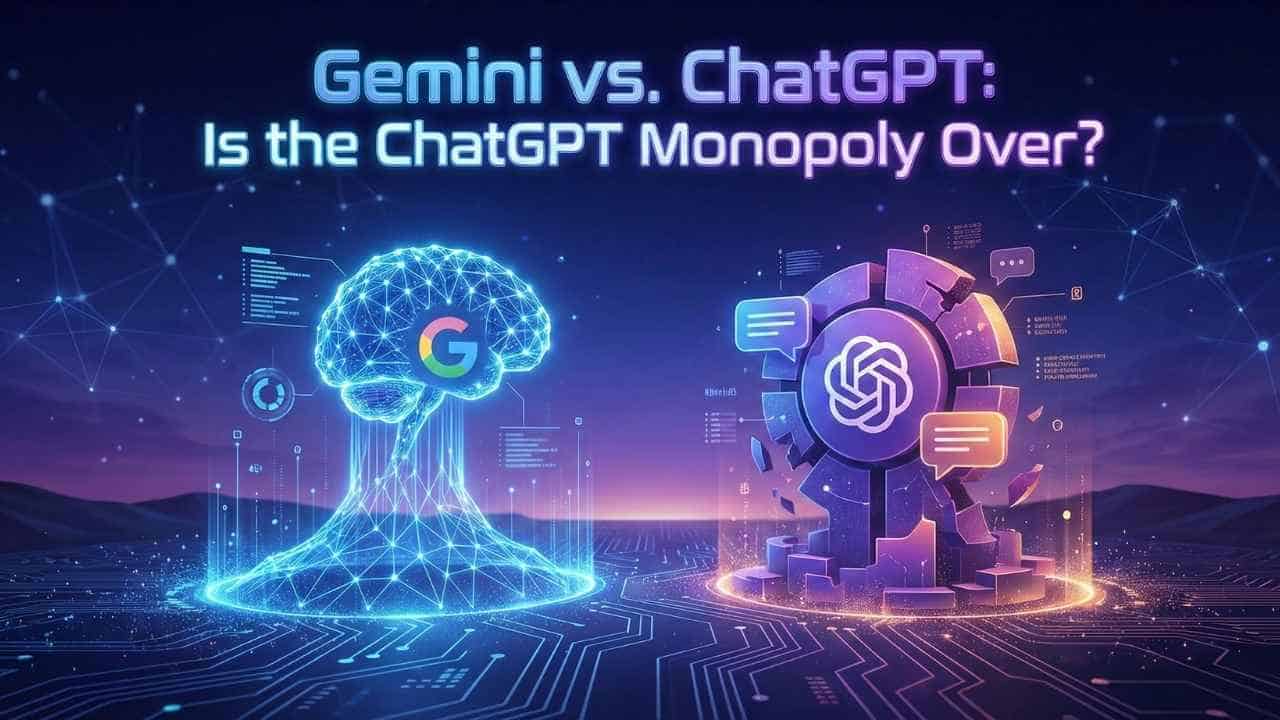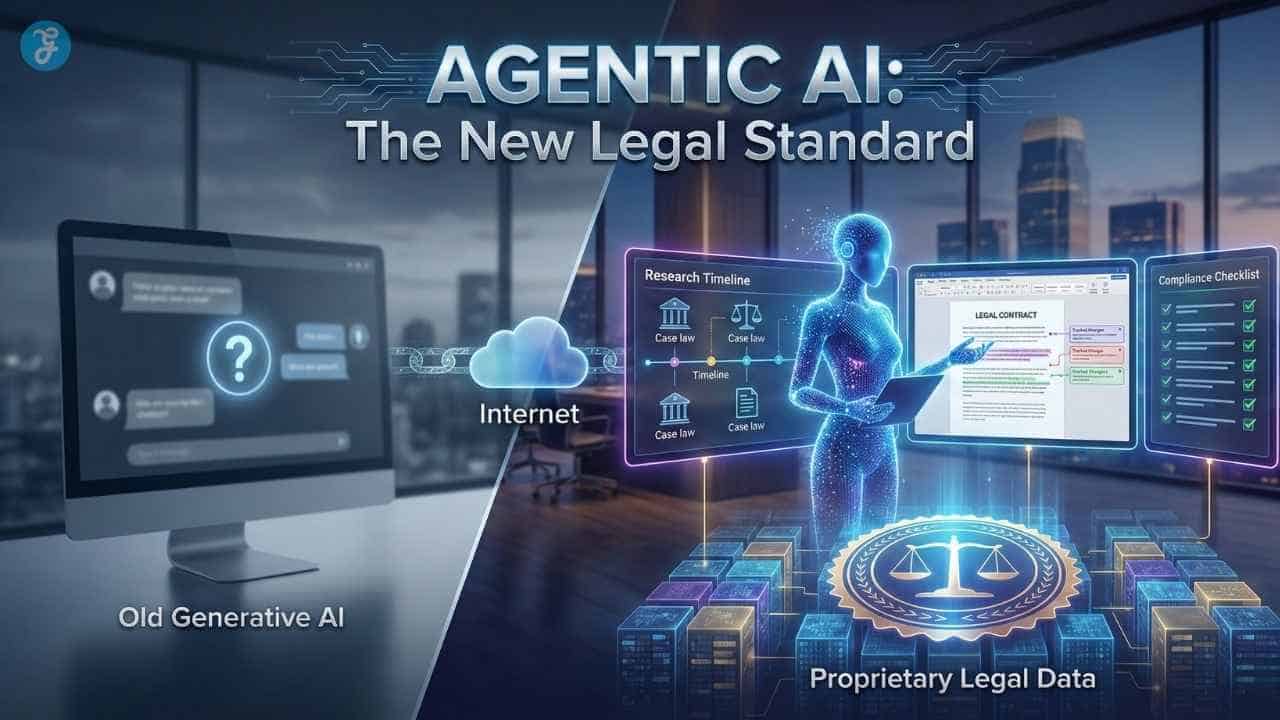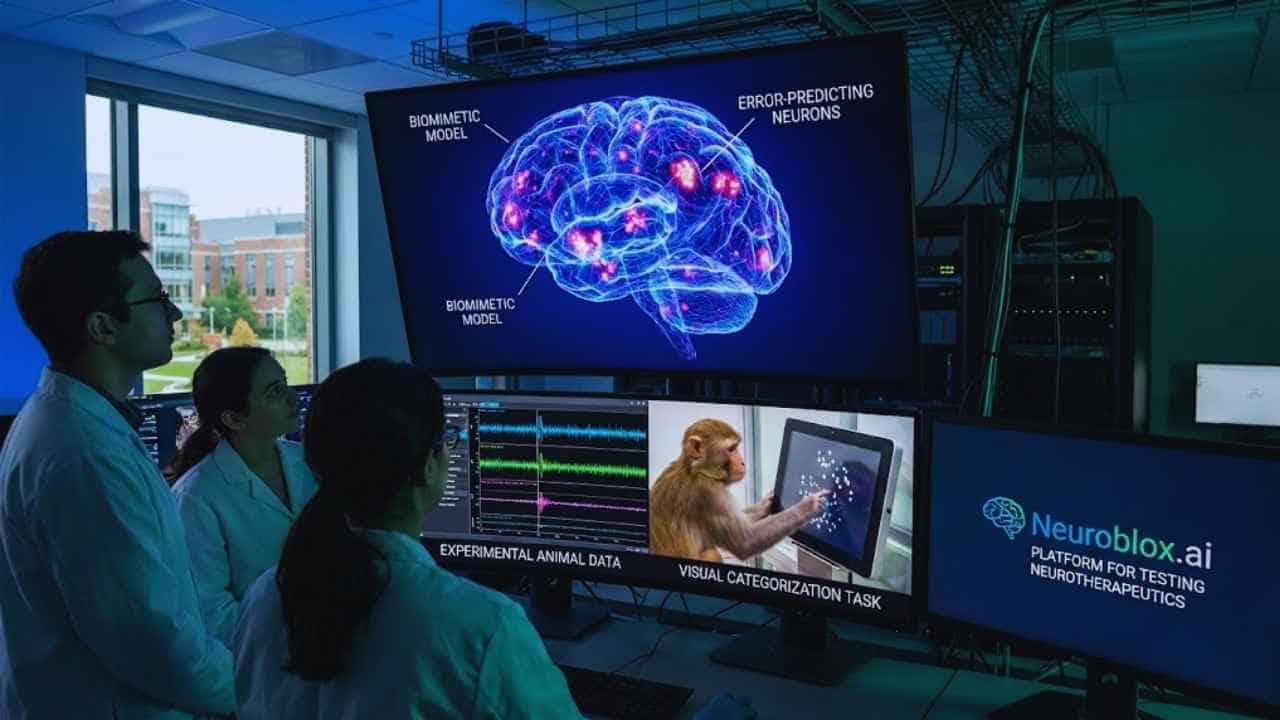Web developers face endless challenges every day—coding mistakes can cost time & money, especially within complex decentralized systems like blockchain technology!
Artificial intelligence proves increasingly useful in simplifying tasks by automating error correction, detecting anomalies, and predicting potential risks before they grow into major problems.
Here we explore ways the technology reshapes the landscape, offering practical tips to achieve superior results faster and smarter than ever before. This article presents insights and advice supported by updated factual information from authentic sources.
Utilizing AI in Decentralized Finance
Artificial intelligence plays a big role in decentralized finance by managing trades and analyzing market impacts to help investors make smart decisions. Technology-driven aids automate crafting strategies and customize portfolios.
Investors benefit when systems track real-time information, allowing quick adjustments that minimize damage and maximize gains. Machine learning sifts through vast amounts of data to predict trends, ensuring users stay ahead.
Advancing Smart Contract Development Through AI
AI is reshaping how developers create and manage smart contracts on blockchain networks. Tools like OpenAI Codex now generate Solidity code, the backbone of many smart contracts, which speeds up development and reduces human error.
AI audits code and spots potential vulnerabilities before deployment, ensuring contracts run smoothly and securely. Autonomous smart contracts powered by AI execute transactions automatically.
AI also simplifies tasks such as summarizing lengthy proposals and optimizing voting systems in decentralized applications. Machine learning models analyze patterns to predict potential issues in smart contracts. Developers can concentrate on creativity while AI handles repetitive tasks.
Governing Web3 with AI Technologies
AI technologies play a significant role in running decentralized blockchains by using machine learning tools to handle workloads that are difficult to manage manually. These smart solutions streamline operations and support faster decision-making.
They improve performance by delivering predictable outcomes and meeting project objectives.
Enhancing Security Measures and Fraud Detection in Web3
Web developers face challenges securing decentralized systems against fraudsters and vulnerabilities online. AI-powered solutions detect threats and protect digital assets by automating fraud detection processes.
Tailoring User Experiences in Web3 Using AI
AI transforms how users interact with Web3 platforms by making experiences more personalized and engaging. By analyzing user behavior, artificial intelligence customizes interfaces, recommendations, and content to match individual preferences.
This personalized approach boosts satisfaction and customer retention.
Predictive analytics powered by machine learning forecasts trends and identifies potential risks in real time. AI can recommend optimal times to trade cryptocurrencies or alert users about suspicious activity.
Employing AI for Predictive Analytics in Blockchain
Artificial intelligence boosts predictive analytics within blockchain systems by analyzing vast amounts of historical data to forecast crypto market shifts accurately. This capability helps developers anticipate trends and adjust strategies, thereby strengthening DeFi platforms.
Through machine learning models, patterns emerge that predict future behavior and enable smarter decision-making. Users benefit from enhanced asset management and risk mitigation by leveraging these actionable insights.
Keywords Integrated Decentralized Finance, Machine Learning Models, Risk Mitigation, Cryptocurrency Markets, Asset Management, Actionable Predictions, Historical Data, Anticipate Trends, Enhanced Decision Making
Streamlining Code Generation and Debugging with AI
AI makes coding faster by generating entire functions from plain text prompts—advanced skills are not required. Tools like OpenAI’s Codex use natural language processing to craft clean code snippets instantly.
Debugging improves as AI detects errors automatically rather than relying on manual fixes, saving hours on projects regardless of size.
Innovating Web3 Marketplaces via AI Enhancements
Web marketplaces now experience improvements using artificial intelligence functions aimed at increasing efficiency and user satisfaction. AI capabilities enable improved online interactions by automatically offering personalized product suggestions based on a user’s tastes.
Simplifying Tokenization of Assets with AI
AI transforms the tokenization process on blockchain platforms by making asset transfers faster and easier to manage.
Machine learning tools such as Federated Learning help reduce risks during complex digital currency transactions like Bitcoin and Ethereum, all while maintaining quality and performance standards.
Facilitating Decentralized Autonomous Organizations with AI
Decentralized autonomous organizations face challenges like complex decision-making and slow operations caused by manual workflows. AI addresses these problems by automating routine tasks such as voting mechanisms and governance decisions.
In doing so, it accelerates efficiency and allows participants to focus on strategic decisions rather than paperwork. The integration of AI creates smoother transactions and clearer communication among members.
Real-time insights and faster dispute resolution keep participants informed, while intuitive interfaces help users with limited technical skills join the movement.
Enhancing Accessibility with AI in Web3 Interfaces
AI makes Web interfaces easier for everyone through natural language processing. It translates complex blockchain protocols into simple conversations so that newcomers understand platforms better. Tools like Chat GPT enable natural interactions, reducing struggles with technical terms.
Advanced machine learning models analyze user behavior and create personalized experiences. Users can navigate decentralized apps with ease, aided by intuitive designs powered by artificial intelligence.
Applying AI in Blockchain Audit and Compliance
Blockchain audit processes now gain significant advantages from artificial intelligence tools like Quantstamp’s platform, which rapidly detects code vulnerabilities that manual reviews can often overlook.
These technologies analyze smart contract designs thoroughly to identify potential exploits early on.
Compliance tracking is streamlined by machine-learning models that monitor transactions and efficiently highlight irregularities. This approach ensures adherence to regulations without the burdens of paperwork-heavy systems.
Optimizing Decentralized Storage Solutions Using AI
AI transforms how decentralized storage solutions work by optimizing data collection and distribution. Automating these tasks reduces manual effort and speeds up processes.
AI also enhances the Web 3.0 infrastructure layer by identifying and fixing storage inefficiencies. Smart contracts can interact with AI to manage data securely, which strengthens data privacy and prevents breaches. AI-powered tools analyze patterns to detect potential risks at an early stage.
Open-source software integrates machine learning techniques to forecast storage needs, while peer-to-peer networks become more reliable through AI-driven insights.
Verifying Identities and Enhancing Management in Web3
In Web3, verifying identities securely remains vital despite privacy concerns that arise with blockchain transactions. Traditional methods often fail to protect sensitive digital asset records, leaving them exposed to cyberattacks and phishing scams.
Without adequate safeguards, users struggle to manage decentralized identity solutions effectively.
This approach increases transparency and regulatory compliance by integrating verification processes directly into system architecture. It reduces the stress of maintaining accurate audit trails across multiple platforms.
Progress in this area prepares the community for future innovations, as continuous improvements in technology support a growing network of professionals and enthusiasts. By working together, these contributors push boundaries and achieve shared goals that foster a brighter digital future.
Developing Metaverse Applications with AI Support
Developing metaverse applications is made smoother using artificial intelligence support systems powered by computer vision and generative modeling techniques.
Scene transitions occur seamlessly, keeping users engaged as they explore virtual spaces with ease. Innovations from tech leaders like Nvidia have led to frameworks that handle heavy computational loads for rendering detailed graphics, meeting high performance standards.
Creative experts focus on designing engaging landscapes and characters while supportive bots manage routine tasks. Improved NPC behaviors achieved through refined machine learning techniques allow digital characters to interact naturally.
These digital landscapes continue to evolve as hardware capabilities improve, setting new industry benchmarks and driving innovation. The transformation in metaverse development not only reshapes the entertainment sector but also establishes lasting standards for creative digital experiences.
Expanding Web3 Adoption Through AI Innovations
AI innovations expand web adoption, especially through tools like natural language processing that simplify complex coding languages. These advancements attract users with varied technical skills by easing interactions within DeFi platforms and similar environments.
POG Digital employs comparable technology to ensure fairness across systems.
Takeaways
AI’s role in web development continues to expand daily, increasing productivity and delivering measurable impacts that benefit enterprises worldwide. The technology fosters innovation, solves coding challenges efficiently, reduces operational costs, and enhances scalability.
Businesses leverage AI to achieve competitive advantages while supporting growth trajectories and executing mission-critical objectives.
FAQs on AI Is Assisting Web3 Developers In Coding Smarter
1. How does AI help Web3 developers with smart contracts?
AI uses machine learning to analyze and improve smart contracts. It helps spot errors, boosts blockchain security, and ensures efficient coding for decentralized finance projects.
2. Can AI assist in managing decentralized applications (dApps)?
Yes, AI-powered tools streamline dApp development. They analyze user behavior, predict market trends, and optimize performance, making it easier for developers to focus on innovation.
3. What role does AI play in blockchain security?
AI algorithms detect cyber threats and prevent data breaches. They conduct security audits, protect digital assets, and strengthen decentralized autonomous organizations (DAOs).
4. How does AI improve project management for Web3 developers?
AI acts as a virtual assistant, automating tasks like scheduling and risk mitigation. It uses predictive analytics to keep projects on track, saving time and effort.
5. Can AI help with creating AI-generated content for Web3 platforms?
Absolutely. AI tools craft engaging content for social media, blogs, and AI-powered marketplaces. They tailor messages to fit the metaverse and decentralized finance audiences.
Disclosure: This content is informational and does not reflect any sponsorship or affiliate relationships. The information is based on updated factual data from credible sources.


